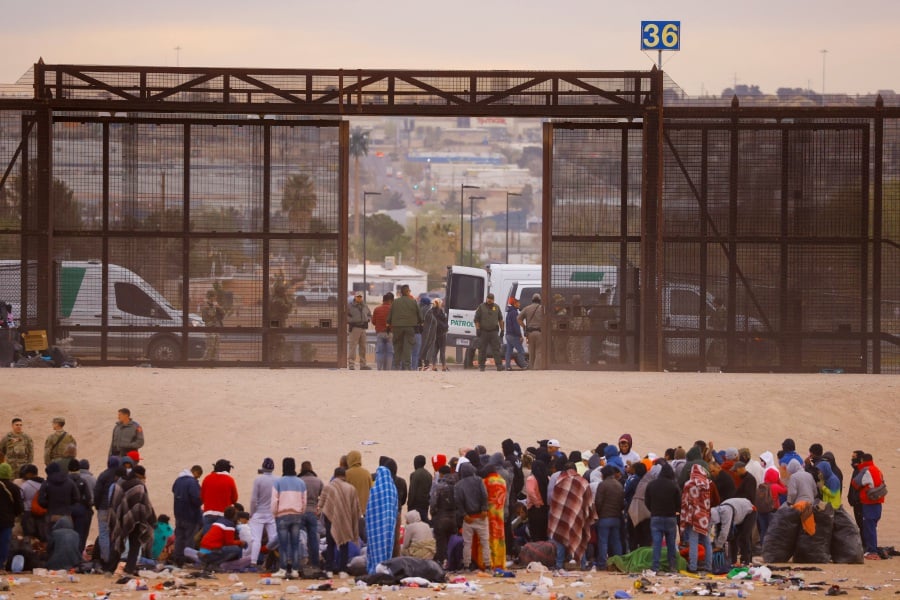Seeking a better life in the United States, migrant Nohe Vargas has spent the past two months dodging police as he weaves a slow way north by bus and motorbike from his home in Nicaragua.
Taking refuge at a migrant camp in Mexico City, the 32-year-old cook is now in a hurry to breach the US-Mexico border.
If the Internet and rumours peddled by smugglers are to be believed, time is running out for him and for hundreds of thousands of other migrants chasing the American Dream.
Social media posts spark fears that a stricter, new, US immigration policy may be planned, with November's presidential election only injecting extra urgency.
So now, Vargas is desperate to find a smuggler who can take him to the border without delay and pre-empt any such crackdown.
"I've heard that (former President Donald) Trump will win again, and he'll start deporting people. It's going to get ugly," Vargas told the Thomson Reuters Foundation at the crowded camp that hundreds of people from mainly Central and South America call home as they prepare to illegally cross the border or seek asylum.
Hundreds of thousands of migrants aiming to reach the United States are making pivotal decisions based on fast-changing smuggler offers and nuggets of information — often misinformation — posted on social media.
Most of the snippets come via Facebook and WhatsApp accounts that do not belong to aid groups or official government sources and sell half truths, at best, or tall tales that ring true.
For migrants, having access to reliable and accurate information has become just as important as shelter and water — but online misinformation peddled by smugglers and organised crime groups make it hard to decipher fact from fiction.
Facebook, the platform most popularly used by migrants, says it bans human smuggling content but tech experts see little evidence that bogus accounts are taken down.
"We prohibit human smuggling content or services on our platforms, and we remove such content when we find it," a Meta spokesperson told the Thomson Reuters Foundation.
According to Katie Paul, head of advocacy group Tech Transparency Project, Facebook is the "biggest source of misinformation" — in part because it has the biggest regional reach of all the social media platforms.
"What makes it such a boon for human traffickers, for scammers, is that you have a completely unregulated platform with a huge cache of very desperate, vulnerable people who are willing to do and accept anything to get out of their situations," said Paul, who campaigns to hold big tech companies accountable.
Online disinformation is likely to get worse in the coming months as the US presidential election nears.
The election and its outcome affect the messages that smugglers, known locally as coyotes, spread on social media — and influences how much they can charge for the trip north.
When Joe Biden took office in 2021, smugglers promoted a false perception that under his administration it would be easier to cross the border and stay in the US.
Harder crossings and border closures also boost fares, with anecdotal evidence suggesting migrants must pay smugglers an extra 10-20 per cent when journeys are riskier or more circuitous, so take longer.
Between January and February 2021, there was a 29 per cent increase in the number of migrants encountered by US border authorities, according to official data.
"A lot of the rhetoric from Republicans claiming that there were open borders, which was false, would then get parroted by coyotes as if it was a fact coming from a politician," said Paul.
Such a narrative has contributed to spikes in migration flows, with migrant arrivals at the US border rising to record highs during the Biden administration.
With Trump likely to be on the ballot in November, smugglers are telling migrants to leave now, saying a return of the Republican could mean tighter border restrictions and increased detentions, with Trump promising mass deportations if he wins.
"Smugglers will say and use anything they can just to create more revenue," said Rafael Velasquez, Mexico country director at the International Rescue Committee aid group.
* The writers are from Reuters





